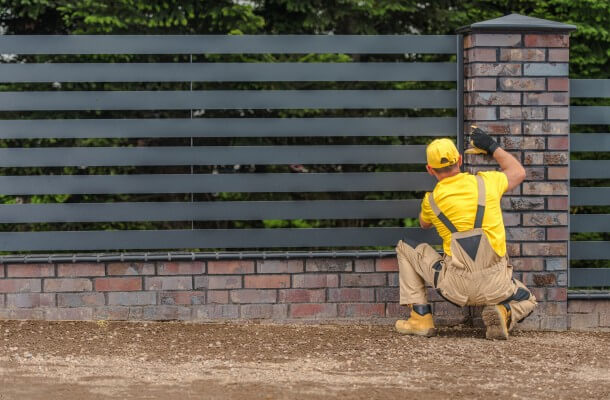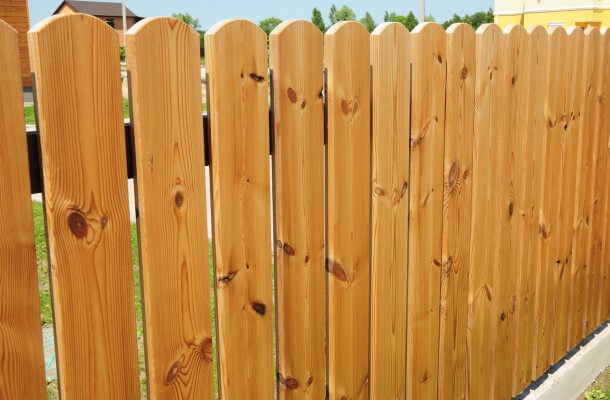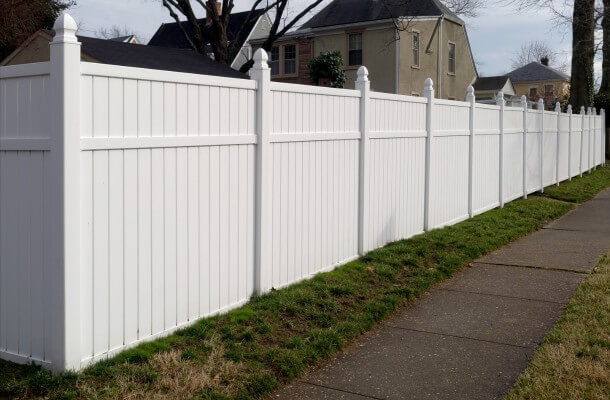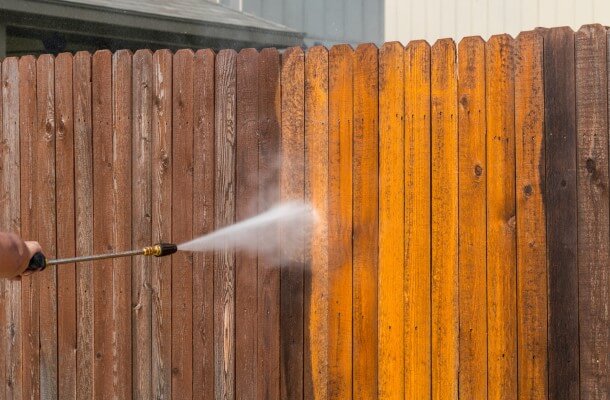Farm & Agricultural Fencing Arvada, CO
Farm and Agricultural Fencing Company Near Arvada, CO
Living in beautiful Arvada, Colorado provides so many benefits – wide open spaces, clean air, and room to grow crops and raise livestock.
However, keeping your farm or agricultural operation secure requires sturdy, specialized fencing adapted for the unique needs of your rural property.
Our team at Arvada Fence Company has over 10 years of experience designing, building and installing fencing on all types and sizes of farms, ranches and agricultural facilities in Arvada and throughout Jefferson County.
We understand the challenges of working with uneven terrain, containing large livestock, minimizing impact on natural resources, and selecting durable materials able to withstand the diverse Colorado climate and wildlife.
Whether you need permanent perimeter fencing, temporary electric fencing for rotational grazing, or customized solutions for specialty crops or animals, Arvada Fence Company has the expertise to get the job done right.
We use only the highest quality materials and back our workmanship with an industry-leading warranty. Our farmers and ranchers count on us for fences that meet their operational needs while complementing the natural beauty of their land.
Contact Arvada Fence Company today to discuss your unique fencing requirements for your Arvada area farm or ranch. Our knowledgeable team is ready to provide a customized fencing recommendation tailored to your specific agriculture application and budget.
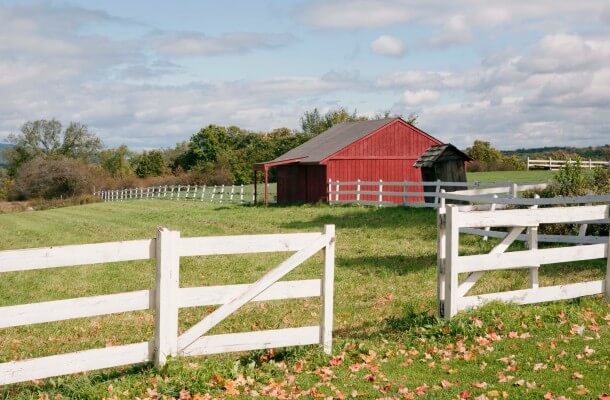
Process We Follow for Farm and Agricultural Fencing
Installing high quality, long lasting farm and agricultural fencing requires careful planning, material selection and proper installation techniques. Here is an overview of our step-by-step process for ensuring your new fence meets the security, functionality and aesthetic needs of your rural Arvada property:
Initial Site Evaluation and Planning
- Thorough assessment of terrain, soils, vegetation, water resources, existing infrastructure and any other site-specific factors.
- Identification of intended fence purpose – perimeter security, livestock containment, rotational grazing, property line delineation, etc.
- Mapping of proposed fence line placement based on customer priorities, land features, operational flow, aesthetics, future plans.
- Determination of special needs or challenges – hilly areas, water crossings, tight spaces, existing landscaping to work around, etc.
- Selection of appropriate fencing materials for performance, durability and appearance.
- Development of preliminary installation plan and sequence.
Material Staging
- Delivery and organized staging of all required fencing materials, tools and equipment prior to installation date.
- Stockpiling of supplies at strategic locations along planned fence line to optimize workflow.
- Final material verification – no shortages or defects that could delay progress or compromise quality.
- Equipment testing and preparation for efficient, accurate digging, setting and assembly.
Field Preparation
- Outline fence perimeter with temporary markings for reference.
- Brush clearing or grading if necessary to create accessible working space along fence line.
- Location identification for specialized treatment of corners, gates, water crossings, property lines.
- Double check underground utility locations if relevant.
Post Hole Digging
- Excavation of precisely aligned and properly sized holes for every fence post and anchor.
- Adjustments to depth and diameter of holes based on soil conditions and post usage.
- Gravel fill and tamping of any holes with poor drainage or loose soil.
- Temporary marking and protection of open holes during multi-day installations.
Post and Brace Setting
- Plumbing and alignment of end, corner and gate posts into holes and anchoring with concrete.
- Precise spacing, leveling and tamping of line posts into holes.
- Solid attachment of tensioning and bracing assemblies designed for specific loads and soil conditions.
- Allowing of proper concrete curing time before stressing braces or hanging materials.
Fence Material Installation
- Attaching of selected fencing mesh, panels or wires to end, corner, gate and line posts.
- Splicing of panel or wire joints with appropriate clips, ties or tensioning tools.
- Modify attachment methods if installing electric fencing with insulated stand-offs.
- Securing top and bottom wires/rails with designed tension for fence performance and safety.
- Spacing line posts according to fencing type and containment requirements.
Gates and Accessories
- Hanging of swing gates and installation of rails, rollers and latches for smooth operation.
- Framing openings for cattle guards if specified.
- Setting boulders or landscape timbers to protect corners or openings from vehicle damage.
Finishing and Inspection
- Collection and removal of all material scraps, temporary markers and worksite debris.
- Visual and operational inspection of entire new fence line and gates when complete.
- Touch up painting or minor adjustments to ensure flawless appearance and functionality for years to come.
- Customer walk through and acceptance of finished installation prior to demobilization.
By systematically following this proven process, we are able to deliver agricultural fencing installations that fully meet the security, safety, operational and aesthetic objectives of each unique rural property we serve near Arvada. Contact us to see how our expertise can benefit your farm, ranch or acreage!
Cost of Farm and Agricultural Fencing in Arvada, CO
The total cost to have new agricultural fencing installed on your Arvada area property will depend on a number of factors, including:
- Linear footage of fencing required.
- Terrain complexity – flat vs hilly.
- Type of materials selected – wire, mesh, panels, posts.
- Special needs like gates, cattle guards, ornamental additions.
- Accessibility of fence line site.
To provide a general idea of standard costs, here are some approximate price ranges:
- Basic 5-strand barbed wire fence – $6-8 per linear foot.
- Stronger woven wire fence with steel posts – $12-18 per linear foot.
- High tensile game fencing with wood posts- $18-24 per linear foot.
- Ornamental iron rail with masonry or stone columns – $50+ per linear foot.
Gates, cattle guards and other accessories will add several hundred to several thousand dollars depending on specifications.
We provide free consultations and exact project quotes upon visiting your property to evaluate unique aspects that will influence final fence costs. Call Arvada Fence Company today to learn more!
Great Reasons to Choose Us
Expertise
Leveraging over 10 years serving Arvada residents, our skilled specialists assess your property to recommend the best fences.
Customization
We design fences tailored to match your home’s style so it feels uniquely yours, not a one-size-fits-all approach.
Quality Materials
Only durable, long-lasting woods and metals go into crafting fences that stand up for years in Colorado’s climate.
Professional Installation
Meticulous installation practices and strict building code compliance ensure your safety and security.
Customer Satisfaction
We refuse to complete a job until you’re 100% happy with your customized fence and the install process.
Affordability
Competitive, upfront pricing and financing options make premium fences attainable for any homeowner’s budget.
Examples of Our Fence Projects in Arvada, Colorado
FAQs About Farm and Agricultural Fencing in Arvada, Colorado
What are the most common types of fences used on farms and ranches?
The most popular agricultural fence types are barbed wire, woven wire, high tensile, welded wire mesh, electric, board fence, decorative iron or aluminum, and combinations of these. We help select the optimal choice for each location and purpose on your property.
What kind of posts are best for farm and ranch fencing?
Steel T-posts are affordable but temporary. Wood posts are strong but require preservative treatment. RailRoad Ties are durable but heavy. We recommend steel or concrete for permanent posts and wood or T-posts for temporary lines.
What height should I make my agricultural fences?
Containment needs and type of livestock determine optimal height. Cattle require 48-60”, sheep and goats need 36-48”, pigs 48-60”, horses 48-72”, deer 8-12′. We customize height recommendations based on your animals.
How far apart should fence posts be spaced?
Post spacing depends on type of fencing, materials, terrain and livestock pressures. Barbed wire and high tensile wire can span 16-30′ between posts. Woven wire usually needs posts every 12-16′. Ask us about ideal spacing for your fencing!
Should I use barbed wire or smooth wire for my farm/ranch fencing?
Barbed wire provides added containment for rowdy livestock like cattle. Smooth wire poses less risk of injury to docile animals like horses. We determine the best wire type for each fence line’s purpose.
What is the difference between temporary electric fencing and permanent fence?
Electric fences use lightweight mesh, tape or cord that can easily be moved for rotational grazing. Permanent fences use sturdier posts and wire that remain fixed in place for years. We recommend the best option given your needs.
How long does it take to install agricultural fencing?
Installation pace depends on crew size, terrain, soil conditions, materials used, and total footage to span. A crew of 3 can typically complete 500 linear feet in 5-7 working days. We provide accurate project timelines after assessing your unique property.
How often does farm fencing need maintenance or repair?
Regular fence inspection and minor repairs should be done annually. Woven wire and barbed wire will last 15-25 years with proper upkeep. High tensile wire can last over 30 years. We help maximize your fence lifespan.
What is the best way to preserve wood fence posts against rot and decay?
Applying preservative sealant or treatment before installing is ideal. For existing posts, removing decayed sections and using wood filler products can add years of life. Replacing rotted posts as needed is key.
How do I make my fence visible to livestock without using barbed wire?
White painted fence posts and rails help livestock see and avoid the barrier. Increasing post height to 60” or higher brings the fence into their line of sight. Adding flagging or other markers to the top wire makes it more visible. PVC fence covers provide bright but flexible impact protection. Proper fence height and material selection helps build visibility.
Fence Solutions We Provide
Residential Fencing
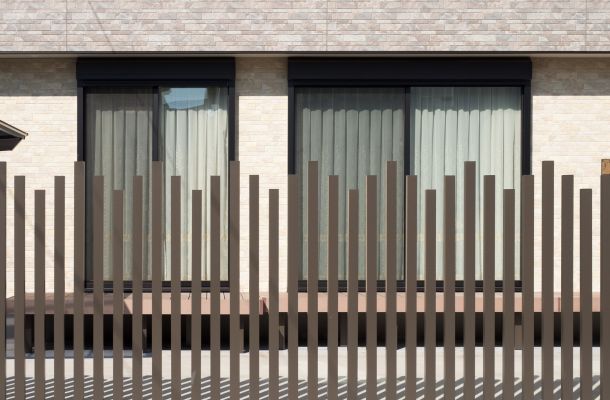
Commercial Fencing

Specialized Fencing
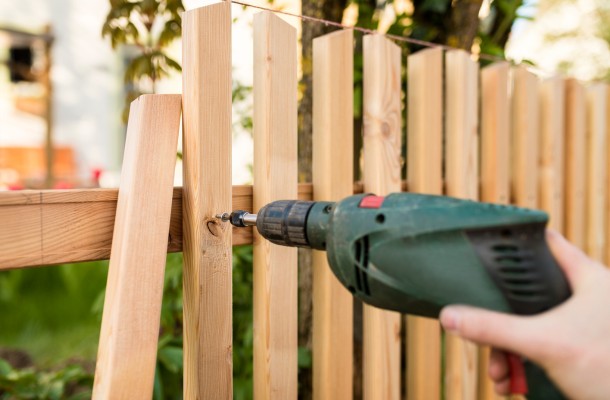
Check Our Blogs
No posts
Service Area
Ralston Valley (80004)
West Woods (80004)
Candelas (80005)
Homestead (80005)
West Arvada (80005)
Arvada Ridge (80007)
Pine Ridge (80005)
Lake Arbor (80003)
Gold Strike (80004)
Maple Park (80004)
Village Green (80004)
Scenic Heights (80004)
Waverly Park (80021)
Squirrel Run (80007)
Wildgrass (80005)
Village East (80004)
Leyden Rock (80004)
Cole (80004)
Briarwood Park (80004)
Fairway Woods (80005)
Majestic View Park (80004)
Ridge Estates (80004)
Heritage Todd Creek (80005)
Wildcat Ridge (80005)
Mountain View Gardens (80001)
Adams County
Hours
Monday: 9:00 AM – 5:00 PM
Tuesday: 9:00 AM – 5:00 PM
Wednesday: 9:00 AM – 5:00 PM
Thursday: 9:00 AM – 5:00 PM
Friday: 9:00 AM – 5:00 PM
Saturday: 9:00 AM – 5:00 PM
Sunday: 9:00 AM – 5:00 PM
Why Local Arvada Residents Trust Us
People Say The Nicest Things
carol Alex
Arvada, CO
Mark Allen
Arvada, CO
Scott Handy
Arvada, CO
Contact Us.
Get Solutions For All Fencing Services
Every day from
9:00 — 5:00
Call to ask any question



